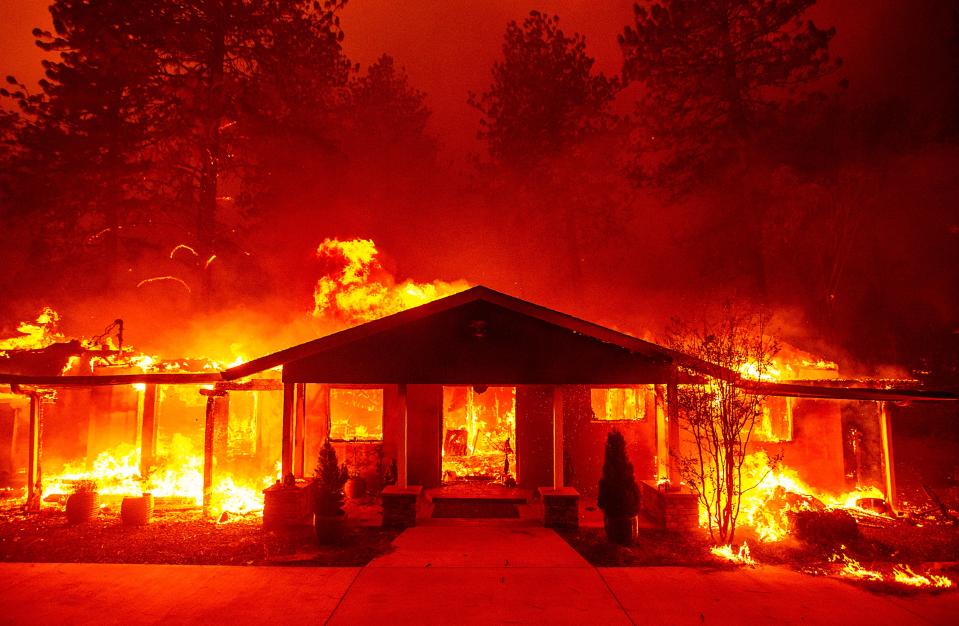Qatar Is Air-Conditioning the Outdoors Because of Climate Change
One common-sense practice for enjoying air conditioning is to keep windows and doors closed, ensuring that the cold doesn't escape outside. In Qatar, however, where temperatures now regularly exceed 110 degrees Fahrenheit during the blazing summer months, they're trying something different. A new report in the Washington Post details how the resource-rich nation of 2.6 million is developing air-conditioning systems for its open-air public spaces—part of an intensive effort to adapt to life on a progressively hotter planet.
Global warming, as the name suggests, is a problem that affects the entire world, but it does not do so equally: Qatar's average temperatures have risen more than 3.6 degrees Fahrenheit since the late 19th century, the Post says, which places it among the nations most affected by the phenomenon's disastrous consequences. This discrepancy stems from, among other things, the rapid pace of urbanization and the country's geographic location in the Persian Gulf region, where, as scientists have warned, heat waves beyond the limits of human tolerance could become routine by the end of this century.
The Post's account is littered with dystopian-sounding anecdotes about measures people are taking to survive extended stretches of afternoon temperatures when they climb into triple digits. Engineers preparing for the 2022 World Cup, which has already pushed its typical summertime start date to November, are outfitting stadiums with massive cooling systems to create invisible bubbles of tolerability for spectators and players. U.S. Air Force maintenance workers in the area are required to drink two bottles of water an hour, and work only 20 minutes at a time before stopping for a 40-minute recuperation period. Chic malls embed air-conditioning units in outdoor walkways, or line them up in rows to prevent al fresco restaurant seating from becoming obsolete. Earlier this year, even as Qatar's Civil Defense Command told residents not to do outdoor work between 10:00 a.m. and 3:00 p.m., it also cautioned them not to "needlessly" run air conditioners, either.
Qatar can afford the absurd costs of outdoor air-conditioning because it has a $320 billion sovereign wealth fund, which invests the country's immense wealth derived from oil and natural gas reserves into real estate, infrastructure, and corporations around the world. Among its more notable investments are stakes in Volkswagen, Heathrow Airport, and the Empire State Building. In a 2017 review of the fund's holdings in London, the BBC suggested that Qatari interests might own more of the city than the Queen of England. As the Post puts it, in places like Qatar, climate change is merely "an engineering problem, not an existential one"—for now.
Few other regions of the globe, however, have the luxury of being able to spend billions of dollars to mitigate climate change's most dangerous impacts, both present and future. Absent a massive, unprecedented international response, scientists expect global temperatures to increase between 5.4 and 9 degrees Fahrenheit by 2100. This result would be particularly devastating for the developing nations of sub-Saharan Africa, where droughts and heat waves are already increasing in both frequency and intensity. The same is true in India, where record-breaking temperatures are melting asphalt roads and triggering widespread water shortages. According to researchers at Stanford University, global warming has yielded an Indian economy that is 31 percent smaller than it otherwise would have been, preemptively hamstringing the country's efforts to respond to the emerging crisis.
Even if Qatar's strategy were financially feasible elsewhere, it is environmental lunacy: In areas without plentiful supplies of clean energy, the energy required to deploy artificial cooling on such a massive scale is bound to increase the production of greenhouse gases, exacerbating the conditions that made air-conditioning the outside necessary in the first place. As far as "solutions" go, it is roughly the equivalent of repairing a leaking dike by ripping a patch from a different, otherwise-undamaged section. But such objections are of little persuasive value to those who would have to deal with the fallout from turning the air conditioners off. "That's about survival," climate activist Neeshad Shafi told the Post. "It's too hot. That's the reality."
Last fall, when the deadliest blaze in America in a century blew through Northern California, thousands of people—including those in the tiny community of Helltown—were forced to flee. This is the story of four friends who stayed to fight.
One of the most famous drummers in history tells GQ about his new album, What's My Name.
Originally Appeared on GQ



